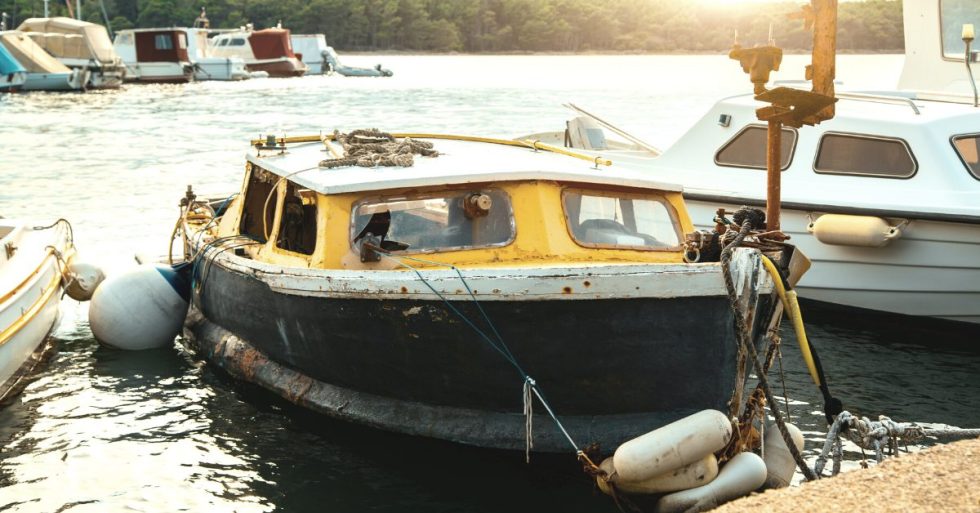If saltwater is not properly monitored, it corrodes and forms corrosion on the exterior (metal) of the boat’s metal pieces. Saltwater is very corrosive, and it corrodes metal 5 times quicker than freshwater. As a result, saltwater has a greater impact on the boat than any other type of water. Here’s How saltwater affects the integrity of your hull and how to protect your boat from corrosion.
Long Term Effects Of Boat in Saltwater
The major consequence of saltwater on boats is rusting. Salt tarnishes and chips away at iron and aluminum. If saltwater enters the engine, rust will occur, destroying the engine’s capacity to move and operate. It can accumulate and crystalize, eventually killing it.
Saltwater damages engine components including the block, exhaust, manifolds, driver, and rise system. Because of the risk of corrosion and the additional effort and maintenance required. Saltwater boats have a terrible reputation for resale and value. In actuality, if saltwater boats are correctly managed, they will last as often as freshwater boats.
Fiberglass & Aluminum Hulls
However, fiberglass and aluminum are the most prevalent boat hulls. Each of these substances interacts differently with water. Fiberglass fades in water over time, but it fades quickly when exposed to saline water.
You will also notice that hulls constructed of fiberglass scrape and acquire dents readily when used in saline water. Aluminum, on the other hand, fares well in saltwater but is prone to fouling. A good grade bottom paint is required to extend the life of an aluminum hull in seawater.
Use Salt-Friendly Paint
You’ll want to choose suitable paint to keep your boat looking new and fresh. When it comes to saltwater vessels, though, you can’t just apply any old paint on the hull. You’ll need to spend some time looking for salt-friendly, anti-fouling paint.
This paint functions as a barrier between the seawater and the hull, preventing metal degradation and corrosion. However, it’s crucial to remember that no paint is impervious to seawater. You’ll still need to wash and sanitize your sailboat following saltwater excursions.
Apply Grease
Apply ample layers of grease to all visible metal surfaces — even the tiniest bits require a coating. This lubricant not only keeps everything running, but it also shields your vessel from corrosion and rust.
Add marine grease on movable metal parts such as latches, hinges, linkages, bow rollers, and so on. Basically, any metal should be slathered with oil. Read your engine owner’s handbook to verify you haven’t overlooked any metal elements that require lubricant.
Flushing Your Engine
Flushing your engine using freshwater is one of the simplest, yet most neglected, ways to defend against saltwater corrosion. This is something you’ll like to perform any time your boat hits the water. This procedure eliminates saltwater from the engine and keeps hazardous salt crystals from corroding.
Leave Your Worries To Us
While preventing corrosion is unavoidable, it is feasible to delay the process with regular maintenance procedures. At Bilbo’s Marine. No boat is too small, and no yacht is too big, we service them all. Contact us today because it’s time to get that Bilbo shine!

3 thoughts on “How Saltwater Affects the Integrity of Your Hull”
These are some great tips for boat maintenance!
Hairline cracks need to be filled right away or they will turn into bigger cracks and will eventually affect the whole boat. great info!
This is really true and it does not just affect boats but actually other forms of metal too. I also noticed that the roof in our beach house gets corroded fast too. Thank you for sharing these tips. I had no idea there’s such thing as salt-friendly paint.